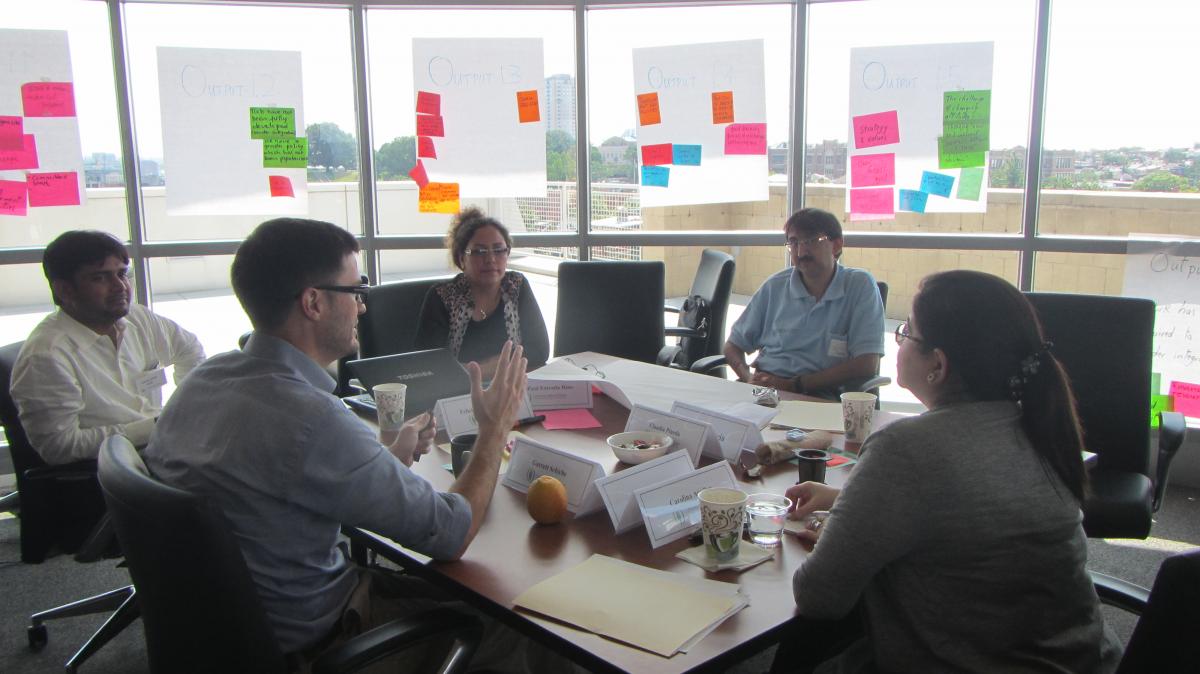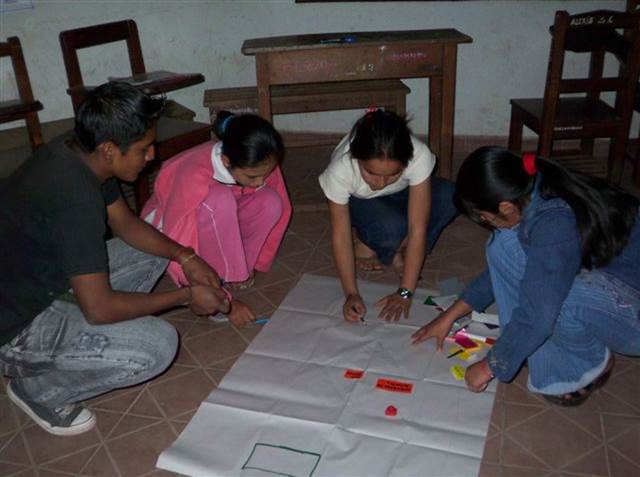Gender integration is a process of building organizational capacity to address differences and inequalities between men, women, girls, and boys, in the design, implementation, and monitoring and evaluation of projects. Building this capacity requires a commitment, both institutional and financial, to ensure that internal and external processes are aligned to reduce disparities between men and women and improve development outcomes.
Cultural Practice, LLC (CP) works with donors and implementing organizations to build staff’s understanding of key gender issues and foster an enabling environment for strategically and sustainably integrating gender issues throughout the program cycle. This process consists of a set of complementary and participatory activities including: assessing organizations’ needs; building internal capacity through training and mentoring; strategy development; and development of tailor-made tools to address inequalities between men and women throughout the life of a project.

Conducting Needs Assessments help determine the key gender based constraints that projects will face and assesses the performance of ongoing projects. The needs assessment also identifies institutional barriers to gender integration through analysis of staff’s capacity and commitment to address gender inequalities in the activities they design, manage, and monitor.
CP worked with Pathfinder International’s USAID Evidence to Action (E2A) Project, which aims to help scale-up and improve reproductive health and family planning services, to increase attention to gender equality in their programs. To assess current knowledge and practices around gender CP conducted interviews and focus groups to assess staff’s level of knowledge and structural barriers to integrating gender into programming. This assessment was used to design and facilitate a gender integration workshop for project personnel, during which staff were engaged in developing a gender integration action plan as an input into the project’s annual work plan.
Gender integration training builds an organization’s capacity to support institutional change, mitigate resistance, and provide gender integration skills related to the project cycle like design and monitoring and evaluation. Through exposure to key concepts on gender, gender analysis, and sector-specific gender integration tools, staff gain critical knowledge for managing gender integration in their programs.
Under the USAID-funded Women in Development IQC, CP led the USAID/East Africa Gender Assessment, which included a regional workshop hosted by USAID/Tanzania for 11 missions. This workshop was shaped by an 18-month process, which helped to identity gender issues in East Africa, supporting USAID/East Africa’s (USAID/EA) Feed the Future multi-year strategy. The workshop aimed to build USAID/EA staff’s capacity to integrate gender issues into USAID agriculture and climate change programming, including applying principles of gender analysis to Feed the Future and Global Climate Change Initiative programming in the region.
Gender integration strategies document an organizations’ commitment to integrating gender and outlines the process for integrating gender throughout the project cycle, including budgeting for gender assessments and training. Strategies can also clarify roles and responsibilities within an organization on gender integration.

CP has worked with the Bill and Melinda Gates Foundation to develop strategic approaches in gender integration in multiple sectors like agriculture, financial services for the poor, and nutrition, reproductive, maternal, neonatal and child health. Institutionalizing gender at the donor level through strategic planning can help communicate to grant managers how gender issues intersect and are interconnected with different points in the grant making cycle.
Tailoring existing or developing tools guide staff at home and in the field during different points in a project. Tools like gender integration handbooks, guides, and manuals reinforce skills acquired during workshops.
The handbook Integrating gender in forestry research: A guide for CIFOR scientists and programme administrators developed by CP provides basic gender definitions and approaches for incorporating gender analysis into the problem focus and methodology sections of forestry scientists’ research proposals.
The activities described above are most effective when they are used systematically through a long-term gender integration process. Since 2012, CP has worked with Lutheran World Relief on its Learning for Gender Integration (LGI) initiative. LGI aims to better contribute to full human flourishing through gender-integrated programming. The initiative began with CP’s assessment of LWR’s agricultural portfolio to identify strengths and weaknesses of gender integration practices. Following this, LWR, with funding from the Food Resources Bank, initiated projects in India, Uganda, and Nicaragua with an explicit focus on addressing gender issues in agriculture and food security. CP conducted gender integration design workshops for these projects and is tailoring design and monitoring tools to support implementation. CP also provides ongoing strategic planning and technical guidance to headquarters and field teams. By systematically using these interconnected activities, organizations like LWR will improve their ability to design and manage gender-integrated programs and increase outcomes while reducing gender gaps.
Learn more about Cultural Practice, LLC.







